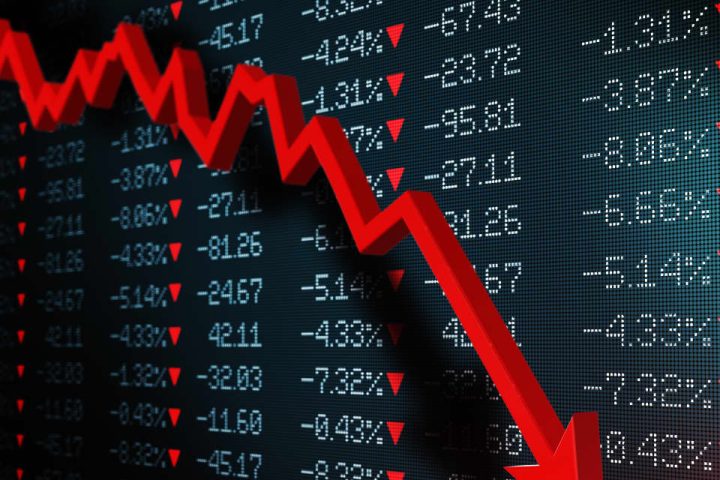U.S. stocks have jumped back near to their summertime highs, a big rebound as investors enter the holiday season with Black Friday just days away.
The shopping frenzy expected on Friday, the day after Thanksgiving, kicks off a spending spree for the holidays that could help buoy stocks after their surge this month.
“With consumers employed and feeling flush, the holiday selling season is starting off well,” said analysts at Yardeni Research, in a note dated Nov. 16. “While high interest rates may restrain spending on expensive goods requiring financing, October’s sales levels represent a solid launch to the holiday shopping season.”
But some investors worry the run-up in U.S. stocks in November may have gone too far, with the S&P 500 index on pace for its largest monthly gain of the year after both bonds and equities rallied. The S&P 500 ended Friday 1.6% below its 2023 closing high at the end of July, surging 7.6% this month after a third straight week of gains, according to Dow Jones Market Data.
“That is overdone,” said Bob Elliott, co-founder and chief executive officer of investment firm Unlimited Funds, in a phone interview. “Financial conditions have meaningfully eased.”
The easing of financial conditions follows the U.S. Treasury Department’s quarterly refunding announcement at the start of November, which showed that it will issue less long-term Treasury bonds than the market expected, said Elliott. That relieved investor concerns over appetite for long duration U.S. government debt amid the deluge of Treasurys hitting the market.
Long-term Treasury bond prices rallied as a result, sending yields lower. And that, in turn, has helped push stock prices higher.
“There was a policy easing by the Treasury,” said Elliott. “That’s stimulative to the real economy and basically kind of sets us back in the tightening cycle a few steps.”
The Federal Reserve has tightened its monetary policy with interest-rate hikes to slow the economy in a bid to bring down inflation that remains above its 2% target. Inflation was flat in October, as measured by the consumer-price index, falling to 3.2% on a year-over-year basis. That’s down from 3.7% in September and as high as 9.1% in June 2022.
Investors were encouraged. Treasury yields tumbled after the consumer-price-index report was released on Nov. 14, steepening their drop this month, while stocks climbed.
Stocks and prices of long-term Treasury bonds have been rallying in tandem in November.
The Vanguard Total Stock Market ETF
VTI,
which tracks U.S. equities, and Vanguard Long-Term Treasury ETF
VGLT
have each surged more than 7% this month through Friday, according to FactSet data.
The yield on the 10 year-Treasury note
BX:TMUBMUSD10Y
was little changed on Friday, at 4.441%, but was down about 43 basis points so far this month based on 3 p.m. Eastern Time levels, according to Dow Jones Market Data.
Don McCree, vice chairman of Citizens Financial Group, told MarketWatch in an interview that the recent drop in Treasury yields prompted him to advise the bank’s corporate clients to take advantage of the decline in borrowing costs as an opportunity to access the debt markets if they have refinancing needs in the next three years.
McCree, who is head of commercial banking at Citizens, also said that his corporate clients are keeping an eye on consumer spending, particularly around the holiday shopping season.
“In recent days, Home Depot
HD,
and Target
TGT,
reported declining revenue but results that beat analysts’ expectations, while TJX
TJX,
—the strongest of the three retailers—reported a strong increase in quarterly results and signaled optimism about the holiday selling season,” according to the Yardeni Research note.
Consumer savings
Consumers’ “excess savings were extremely important in 2022 because real disposable personal income declined sharply in 2022, partly because of the inflation surge,” Jan Hatzius, chief economist at Goldman Sachs Group, said Nov. 16 during an online media briefing on the 2024 outlook of the bank’s global investment research group.
While excess savings are now “smaller,” real disposable income is growing at “a very healthy pace of about 4% in 2023,” said Hatzius. “We’re still expecting something close to 3% in 2024, which should be sufficient to keep consumption growing at, again, an okay pace, 2% or so.”
U.S. retail sales dipped 0.1% in October, falling for the first time in seven months, although not all areas fell, according to Yardeni analysts. “The latest data show consumers continued to spend at clips higher than a year ago in restaurants,” they said.
Read: Credit-card, auto-loan ‘stress’ rises as U.S. consumers fall behind on payments
Meanwhile, the U.S. unemployment rate remains low, at 3.9% in October.
“We’re looking for no material increase in the unemployment rate” next year and place just a 15% probability of a recession over the next 12 months, said Hatzius, during the media briefing.
When it comes to the consumer, “it’s all about employment,” according to Elliott. “Income growth is quite a bit stronger than price growth,” he said, improving “the real spending power for households.”
Restrictive?
In its inflation battle, the central bank has lifted its benchmark rate to a 22-year high of 5.25% to 5.5%, with Fed Chair Jerome Powell recently describing the central bank’s monetary policy as “restrictive.”
But “if the economy is fine” at these rate levels, then “by definition” they’re not restrictive and rates may remain higher for longer, said Elliott.
“The macroeconomy is super slow-moving,” and asset prices may need to fall for the Fed’s tightening cycle to move faster, he said.
U.S. stocks closed higher Friday, with the Dow Jones Industrial Average
DJIA,
S&P 500
SPX
and Nasdaq Composite
COMP
each rising for a third straight week. The S&P 500 surged 9.6% over the past three weeks, its largest three-week percentage gain since June 2020, according to Dow Jones Market Data.
Read: Walmart CEO expects to see ‘period of deflation’ in the coming months
Time to buy quality stocks?
“Now may be time to seek exposure to quality stocks,” amid signs of U.S. growth softening, according to a UBS research note Friday.
“Quality stocks have historically outperformed in the late stages of the business cycle, including in periods of economic contraction, which should offer portfolio protection if the economy slows more than we expect,” Solita Marcelli, chief investment officer for the Americas at UBS Global Wealth Management, said in the note. “The quality tilt also aligns with our preference for U.S. technology companies.”
Quality companies, which tend to be inherently defensive with stronger balance sheets and consistent cash flow, may also benefit from “pricing power,” in the view of Tom Hancock, head of the focused equity team at legendary investor Jeremy Grantham’s GMO.
Hancock, a portfolio manager of the firm’s recently launched GMO U.S. Quality ETF
QLTY,
said in an interview with MarketWatch that he looks for quality stocks “at a reasonable price,” which may be found in various sectors, such as technology, healthcare and consumer staples.
“Quality is a characteristic that is likely to do well in this environment,” said David Kostin, Goldman’s chief U.S. equity strategist, during the media briefing. He said quality stocks may be defined as having larger market capitalizations and more stable revenue and sales growth, which should help them fare better if economic growth forecasts fail to pan out.
Read the full article here







